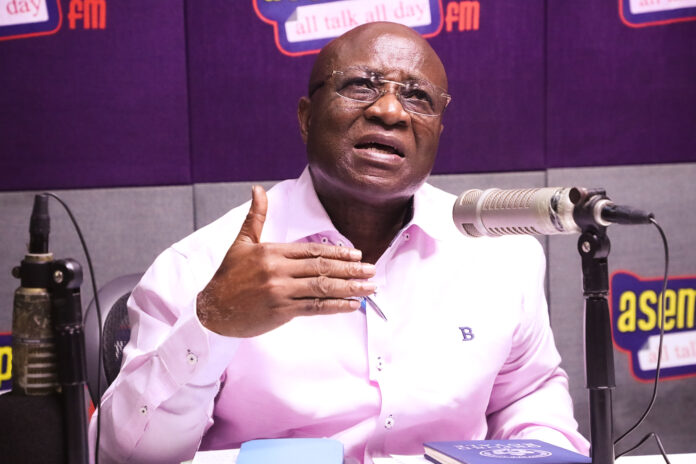Former Majority Leader Osei Kyei-Mensah-Bonsu has attributed the New Patriotic Party’s (NPP) defeat in the 2024 general elections to a mix of internal and external challenges.
In an interview on Channel One TV, Mr. Kyei-Mensah-Bonsu cited the COVID-19 pandemic, the Russia-Ukraine war, internal party issues, and the government’s Domestic Debt Exchange Programme as major factors that contributed to the party’s loss.
His remarks follow the World Bank’s recent dismissal of claims that Ghana’s 2022 economic crisis was primarily driven by external factors.
In its latest report, Transforming Ghana in a Generation, the Bretton Woods institution stated that global shocks merely “exposed an economy already beset with deep structural vulnerabilities and precarious macroeconomic conditions.”
However, the former Suame MP has insisted that while the Akufo-Addo administration made significant efforts to safeguard lives and livelihoods during the pandemic, those measures came at a high economic cost.
“I can relate to the findings that led to our loss. The Ashanti regional chapter of the enquiry cited four main issues — one being external factors, some strong winds that blew from outside and hit us unprepared. Yes, it affected the economy. But basically attributable to COVID-19, the Russia-Ukraine war, these are force majeures we couldn’t control; they hit us, they had repercussions on us on the economy in particular, especially the meltdown that we experienced.”
He emphasised, “The former President [Nana Addo Dankwa Akufo-Addo] did so well to protect livelihoods and lives. But it had a toll on the country’s finances, and going forward, it ignited some heat in the system. And then we had to go to the IMF for a bailout.”
According to him, the Domestic Debt Exchange Programme deepened public dissatisfaction as it directly affected over 800,000 individuals and their families.
He also noted that rising global prices, including the cost of fertilisers, resulting from the Russia-Ukraine war, worsened living conditions in Ghana.
Additionally, he acknowledged that governance challenges following the pandemic contributed to stalled infrastructure projects, heightening public frustration.
“Some of the things that we had not intended to do, the domestic debt exchange programme, which affected over 800,000 people. They had families, and so, they were pressed. Then we had other matters, including, in particular, the Russia-Ukraine war, which escalated the cost of many items. Even fertilisers were affected.”
“Then we had issues with governance. Post-COVID-19, our backs were to the wall. We had to put the brakes on development projects that affected the lubrication of the system” he stressed.
Source : Adomonline
ALSO READ:



